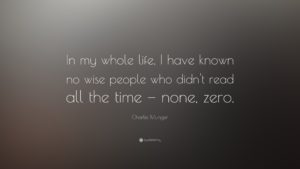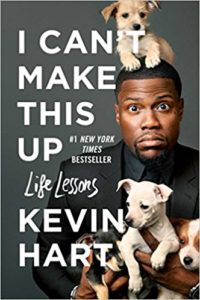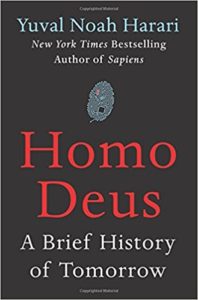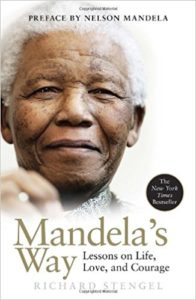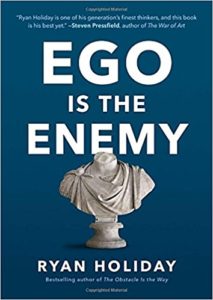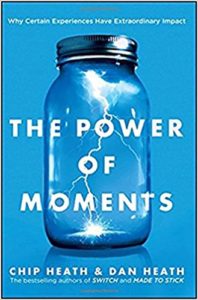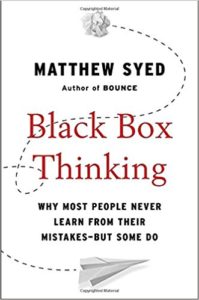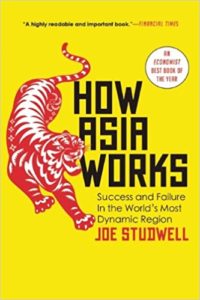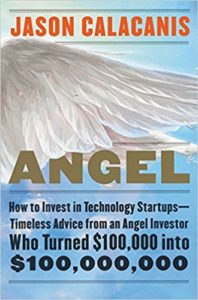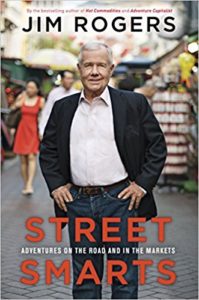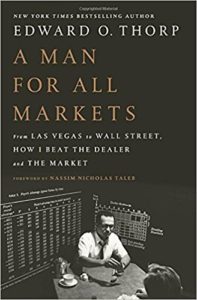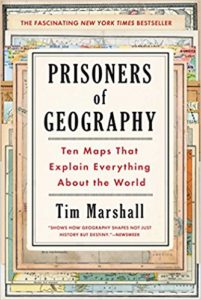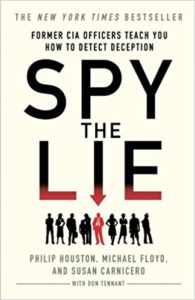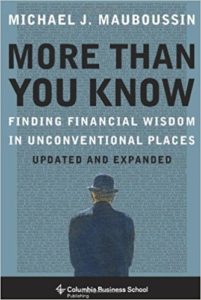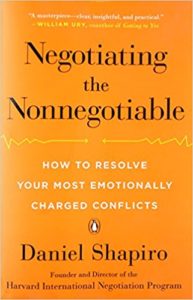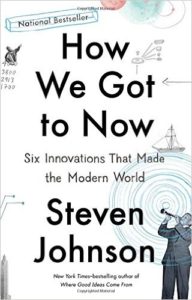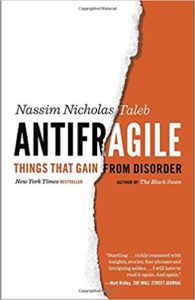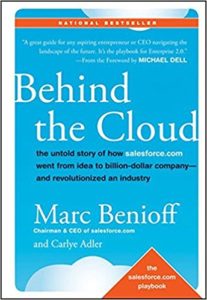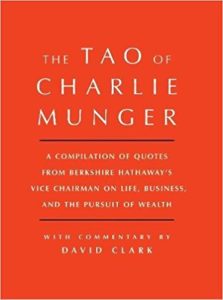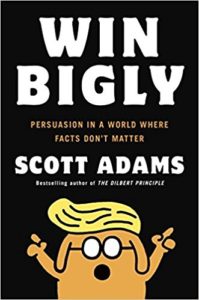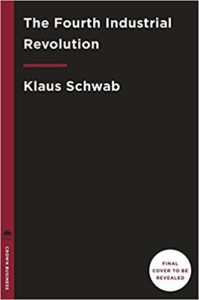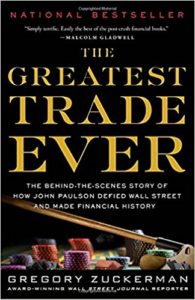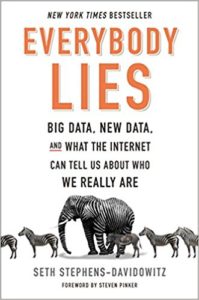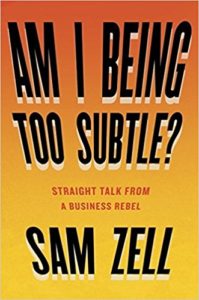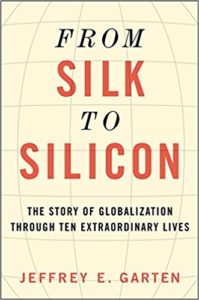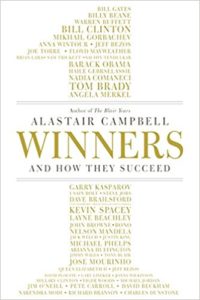500 Books in 5 Years: Top Books of 2017
The Chinese have a saying: 读万卷书,行万里路 (dú wàn juǎn shū, xíng wàn lǐ lù): to read 10,000 books and walk 10,000 miles. I’m not there yet, but over the last five years, I’ve flown over 500,000 miles, and read over 500 books. While its never been easy, at the very least, I hope it has set a foundation for me to grow on, and if anything, it has made my life so very interesting.
Welcome back if you’ve followed my annual book list for the last several years. I am very proud that I was able to get through 111 books this year to get me to 500 over five years. I changed the format again, as I thought a top 10 list was cutting it too short, so I published a top 25 this year. That said, there was no way I am finding the time to write 25 summaries, so this year I just copied them from Amazon. If you want my personal opinion on each book, feel free to take me out for a beer.
Enjoy 🙂
#1: I Can’t Make This Up: Life Lessons
By: Kevin Hart
He achieved this not just through hard work, determination, and talent: It was through his unique way of looking at the world. Because just like a book has chapters, Hart sees life as a collection of chapters that each person gets to write for himself or herself.
My Note: I am a huge fan of Kevin Hart already, but what this book solidifies is the importance of how an individual’s view of his or her circumstances, and the correlation to success based on that view. His stories are both entertaining and insightful, as well as the lessons he learned about how to harness and hone the craft of comedy was very eye-opening. Hands down the best book I read all year.
#2: Homo Deus: A Brief History of Tomorrow
By: Yuval Noah Harari
Over the past century humankind has managed to do the impossible and rein in famine, plague, and war. This may seem hard to accept, but, as Harari explains in his trademark style—thorough, yet riveting—famine, plague, and war have been transformed from incomprehensible and uncontrollable forces of nature into manageable challenges. For the first time ever, more people die from eating too much than from eating too little; more people die from old age than from infectious diseases, and more people commit suicide than are killed by soldiers, terrorists and criminals put together. The average American is a thousand times more likely to die from binging at McDonald’s than from being blown up by Al Qaeda.
What then will replace famine, plague, and war at the top of the human agenda? As the self-made gods of planet earth, what destinies will we set ourselves, and which quests will we undertake? Homo Deus explores the projects, dreams, and nightmares that will shape the twenty-first century—from overcoming death to creating artificial life. It asks the fundamental questions: Where do we go from here? And how will we protect this fragile world from our own destructive powers? This is the next stage of evolution. This is Homo Deus
#3: Mandela’s Way: Lessons on Life, Love, and Courage
By: Richard Stengel
In Mandela’s Way, Stengel recounts the moments in which “the grandfather of South Africa” was tested and shares the wisdom he learned: why courage is more than the absence of fear, why we should keep our rivals close, why the answer is not always either/or but often “both,” how important it is for each of us to find something away from the world that gives us pleasure and satisfaction—our own garden.
#4: Ego Is the Enemy
By: Ryan Holiday
Many of us insist the main impediment to a full, successful life is the outside world. In fact, the most common enemy lies within; our ego. Early in our careers, it impedes learning and the cultivation of talent. With success, it can blind us to our faults and sow future problems. In failure, it magnifies each blow and makes recovery more difficult. At every stage, ego holds us back.
My Note: All of my greatest failures have been a result of my ego. This book is has served me as a constant reminder to tell that overconfident fellow on my shoulder to shut up. 🙂
#5: The Power of Moments: Why Certain Experiences Have Extraordinary Impact
By: Chip Health & Dan Health
This book delves into some fascinating mysteries of experience: Why we tend to remember the best or worst moment of an experience, as well as the last moment, and forget the rest. Why “we feel most comfortable when things are certain, but we feel most alive when they’re not.” And why our most cherished memories are clustered into a brief period during our youth.
#6: Black Box Thinking: The Surprising Truth About Success
By: Matthew Syed
Syed argues that the most important determinant of success in any field is an acknowledgment of failure and a willingness to engage with it. Yet most of us are stuck in a relationship with failure that impedes progress, halts innovation, and damages our careers and personal lives. We rarely acknowledge or learn from failure—even though we often claim the opposite. We think we have 20/20 hindsight, but our vision is usually fuzzy.
#7: How Asia Works
By: Joe Studwell
In How Asia Works, Joe Studwell distills extensive research into the economics of nine countries—Japan, South Korea, Taiwan, Indonesia, Malaysia, Thailand, the Philippines, Vietnam, and China—into an accessible, readable narrative that debunks Western misconceptions, shows what really happened in Asia and why, and for once makes clear why some countries have boomed while others have languished.
#8: Angel: How to Invest in Technology Startups–Timeless Advice from an Angel Investor Who Turned $100,000 into $100,000,000
By: Jason Calacanis
As Calacanis makes clear, you can get rich—even if you came from humble beginnings (his dad was a bartender, his mom a nurse), didn’t go to the right schools, and weren’t a top student. The trick is learning how angel investors think. Calacanis takes you inside the minds of these successful moneymen, helping you understand how they prioritize and make the decisions that have resulted in phenomenal profits. He guides you step by step through the process, revealing how leading investors evaluate new ventures, calculating the risks and rewards, and explains how the best startups leverage relationships with angel investors for the best results.
#9: Street Smarts: Adventures on the Road and in the Markets
By: Jim Rogers
Jim Rogers, whose entertaining accounts of his travels around the world–studying the markets from Russia to Singapore from the ground up–has enthralled readers, investors and Wall Street aficionados for decades. In his engaging memoir Street Smarts, Rogers offers pithy commentary from a lifetime of adventure, from his early years, growing up a naïve kid in Demopolis, Alabama, to his fledgling career on Wall Street, to his co-founding of the wildly successful Quantum Fund.
#10: A Man for All Markets: From Las Vegas to Wall Street, How I Beat the Dealer and the Market
By: Edward O. Thorp
Here, for the first time, Thorp tells the story of what he did, how he did it, his passions and motivations, and the curiosity that has always driven him to disregard conventional wisdom and devise game-changing solutions to seemingly insoluble problems. An intellectual thrill ride, replete with practical wisdom that can guide us all in uncertain financial waters,
#11: Prisoners of Geography: Ten Maps That Explain Everything About the World
By: Tim Marshall
Offering “a fresh way of looking at maps” (The New York Times Book Review), Marshall explains the complex geo-political strategies that shape the globe. Why is Putin so obsessed with Crimea? Why was the US destined to become a global superpower? Why does China’s power base continue to expand? Why is Tibet destined to lose its autonomy? Why will Europe never be united? The answers are geographical.
#12: Spy the Lie: Former CIA Officers Teach You How to Detect Deception
By: Philip Houston & Michael Floyd
Through fascinating anecdotes from their intelligence careers, the authors teach readers how to recognize deceptive behaviors, both verbal and nonverbal, that we all tend to display when we respond to questions untruthfully. For the first time, they share with the general public their methodology and their secrets to the art of asking questions that elicit the truth.
#13: More Than You Know: Finding Financial Wisdom in Unconventional Places
By: Michael Mauboussin
More Than You Know is written with the professional investor in mind but extends far beyond the world of economics and finance. Mauboussin groups his essays into four parts-Investment Philosophy, Psychology of Investing, Innovation and Competitive Strategy, and Science and Complexity Theory-and he includes substantial references for further reading. A true eye-opener, More Than You Know shows how a multidisciplinary approach that pays close attention to process and the psychology of decision making offers the best chance for long-term financial results.
#14: Negotiating the Nonnegotiable: How to Resolve Your Most Emotionally Charged Conflicts
By: Daniel Shapiro
In Negotiating the Nonnegotiable, Harvard negotiation expert Daniel Shapiro introduces a groundbreaking method to bridge the toughest divides—whether with family members, colleagues, or in the polarized world of politics. He reveals the hidden power of identity in fueling conflict and presents a practical framework to reconcile even the most contentious situations. Field-tested around the world, the results are empowering.
#15: How We Got to Now: Six Innovations That Made the Modern World
By: Steven Johnson
In his trademark style, Johnson examines unexpected connections between seemingly unrelated fields: how the invention of air-conditioning enabled the largest migration of human beings in the history of the species—to cities such as Dubai or Phoenix, which would otherwise be virtually uninhabitable; how pendulum clocks helped trigger the industrial revolution; and how clean water made it possible to manufacture computer chips. Accompanied by a major six-part television series on PBS, How We Got to Now is the story of collaborative networks building the modern world, written in the provocative, informative, and engaging style that has earned Johnson fans around the globe.
#16: Antifragile (Things That Gain from Disorder)
By: Nassim Nicholas Taleb
In Antifragile, Taleb stands uncertainty on its head, making it desirable, even necessary, and proposes that things be built in an antifragile manner. Furthermore, the antifragile is immune to prediction errors and protected from adverse events. Why is the city-state better than the nation-state, why is debt bad for you, and why is what we call “efficient” not efficient at all? Why do government responses and social policies protect the strong and hurt the weak? Why should you write your resignation letter before even starting on the job? How did the sinking of the Titanic save lives? The book spans innovation by trial and error, life decisions, politics, urban planning, war, personal finance, economic systems, and medicine.
#17: Behind the Cloud: The Untold Story of How Salesforce.com Went from Idea to Billion-Dollar Company-and Revolutionized an Industry
By: Marc Benioff & Carlye Adler
How did salesforce.com grow from a startup in a rented apartment into the world’s fastest growing software company in less than a decade? For the first time, Marc Benioff, the visionary founder, chairman, and CEO of Salesforce.com, tells how he and his team created and used new business, technology, and philanthropic models tailored to this time of extraordinary change. Showing how salesforce.com not only survived the dotcom implosion of 2001, but went on to define itself as the leader of the cloud computing revolution and spark a $46-billion dollar industry, Benioff’s story will help business leaders and entrepreneurs stand out, innovate better, and grow faster in any economic climate.
#18: Tao of Charlie Munger: A Compilation of Quotes from Berkshire Hathaway’s Vice Chairman on Life, Business, and the Pursuit of Wealth
By: David Clark
The Tao of Charlie Munger is a compendium of pithy quotes including, “Knowing what you don’t know is more useful than being brilliant” and “In my whole life, I have known no wise people who didn’t read all the time—none, zero.” This collection, culled from interviews, speeches, and questions and answers at the Berkshire Hathaway and Wesco annual meetings, offers insights into Munger’s amazing financial success and life philosophies.
#19: Win Bigly: Persuasion in a World Where Facts Don’t Matter
By: Scott Adams
The point isn’t whether Trump was right or wrong, good or bad. Win Bigly goes beyond politics to look at persuasion tools that can work in any setting—the same ones Adams saw in Steve Jobs when he invested in Apple decades ago. For instance:
· If you need to convince people that something is important, make a claim that’s directionally accurate but has a big exaggeration in it. Everyone will spend endless hours talking about how wrong it is while accidentally persuading themselves the issue is a high priority.
· Stop wasting time on elaborate presentations. Inside, you’ll learn which components of your messaging matter, and where you can wing it.
· Creating “linguistic kill shots” with persuasion engineering (such as “Low-energy Jeb”) can be more powerful than facts and policies.
Adams offers nothing less than “access to the admin passwords to human beings.” This is a must-read if you care about persuading others in any field—or if you just want to resist persuasion from others.
My Note: This is a must-read for both liberals and conservatives. There will be areas that you’ll find difficult to stomach, and that is your ego, and your mind protecting you from the truth. So that is why you must read this.
#20: The Fourth Industrial Revolution
By: Klaus Schwab
He outlines the key technologies driving this revolution and discusses the major impacts expected on government, business, civil society, and individuals. Schwab also offers bold ideas on how to harness these changes and shape a better future—one in which technology empowers people rather than replaces them; progress serves society rather than disrupts it, and in which innovators respect moral and ethical boundaries rather than cross them. We all have the opportunity to contribute to developing new frameworks that advance progress.
#21: The Greatest Trade Ever: The Behind-the-Scenes Story of How John Paulson Defied Wall Street and Made Financial History
By: Gregory Zuckerman
In 2006, hedge fund manager John Paulson realized something few others suspected–that the housing market and the value of subprime mortgages were grossly inflated and headed for a major fall. Paulson’s background was in mergers and acquisitions, however, and he knew little about real estate or how to wager against housing. He had spent a career as an also-ran on Wall Street. But Paulson was convinced this was his chance to make his mark. He just wasn’t sure how to do it. Colleagues at investment banks scoffed at him and investors dismissed him. Even pros skeptical about housing shied away from the complicated derivative investments that Paulson was just learning about. But Paulson and a handful of renegade investors such as Jeffrey Greene and Michael Burry began to bet heavily against risky mortgages and precarious financial companies. Timing is everything, though. Initially, Paulson and the others lost tens of millions of dollars as real estate and stocks continued to soar. Rather than back down, however, Paulson redoubled his bets, putting his hedge fund and his reputation on the line.
#22: Everybody Lies: Big Data, New Data, and What the Internet Can Tell Us About Who We Really Are
By: Seth Stephens-Davidowitz
Seth Stephens-Davidowitz offers revelations that can help us understand ourselves and our lives better. Drawing on studies and experiments on how we really live and think, he demonstrates in fascinating and often funny ways the extent to which all the world is indeed a lab. With conclusions ranging from strange-but-true to thought-provoking to disturbing, he explores the power of this digital truth serum and its deeper potential—revealing biases deeply embedded within us, information we can use to change our culture, and the questions we’re afraid to ask that might be essential to our health—both emotional and physical. All of us are touched by big data every day, and its influence is multiplying. Everybody Lies challenges us to think differently about how we see it and the world.
#23: Am I Being Too Subtle?: Straight Talk From a Business Rebel
By: Sam Zell
Self-made billionaire Sam Zell consistently sees what others don’t. From finding a market for overpriced Playboy magazines among his junior high classmates to buying real estate on the cheap after a market crash to investing in often unglamorous industries with long-term value, Zell acts boldly on supply and demand trends to grab the first-mover advantage. And he can find opportunity virtually anywhere—from an arcane piece of legislation to a desert meeting in Abu Dhabi.
#24: From Silk to Silicon: The Story of Globalization Through Ten Extraordinary Lives
By: Jeffrey E. Garten
This is the first book to look at the history of globalization through the lens of individuals who did something transformative, as opposed to describing globalization through trends, policies, or particular industries. From Silk to Silicon tells the story of who these men and women were, what they did, how they did it and how their achievements continue to shape our world today.
#25: Winners: And How They Succeed
By: Alastair Campbell
Alastair Campbell has conducted in-depth interviews and uses his own experience in politics and sport to get to the heart of success. He examines how winners tick. He considers how they build great teams. He analyzes how these people deal with unexpected setbacks and new challenges. He judges what the very different worlds of politics, business, and sport can learn from one another. And he sets out a blueprint for winning that we can all follow to achieve our goals.
My Note: Strategy without tactics is the slowest route to victory. Tactics without strategy is the noise before defeat. -Sun Tzu
Honorable Mentions:
The Great Beanie Baby Bubble: The Amazing Story of How America Lost Its Mind Over a Plush Toy–and the Eccentric Genius Behind It
By: Zac Bissonnette
More Money Than God: Hedge Funds and the Making of a New Elite
By: Sebastian Mallaby
Option B: Facing Adversity, Building Resilience, and Finding Joy
By: Sheryl Sandberg & Adam Grant
My Note: Honestly, I have zero-clue on how to deal with death, or console those that are dealing with it at the time. This was a very helpful book regarding of whether you are dealing with grief or not.
Unbreakable: A Navy SEAL’s Way of Life
By: Thom Shea
No Shortcuts to the Top: Climbing the World’s 14 Highest Peaks
By: Ed Viesturs & David Roberts
If you’re interested in my past lists of best books each year:
https://tianyijoezhu.com/2016/12/another-100-books-finished-top-10-for-2016/
https://tianyijoezhu.com/2015/12/in-2015-i-finished-100-books-here-are-my-top-10/
https://tianyijoezhu.com/2014/12/top-40-books-ive-read-in-2014/
https://tianyijoezhu.com/2014/07/i-read-100-books-in-2013-and-it-changed-my-life-my-top-50-list/
